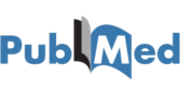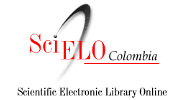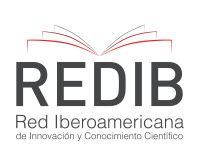Auscultating corruption in the health sector: definition and causes. What is it on the table?
DOI:
https://doi.org/10.18597/rcog.154Keywords:
healthcare delivery, economics, government finance, healthcare insurance, theftAbstract
Introduction: the desire to receive favorable or preferential treatment, infringing standards and the law, leads to corrupt behavior. The fact of placing particular interests above those of the general public affects society, excluding a significant percentage of the population and affecting their constitutional rights. This article provides reflection about the concept of corruption and reviews actors from the Colombian healthcare system, inviting an interdisciplinary look at the matter thereby leading to a critical reading of the information presented by the mass media.
Objective: reflecting on what is corruption, what are its causes, how does it affect the Colombian healthcare system and discussing the need for far-reaching reform regarding the formation of cultural values thereby orientating people towards valuing honesty and transparency.
Materials and methods: this reflection article points out how corruption affects public health by reviewing secondary sources. A conceptual approach is sought regarding the notion of corruption from economic, political and cultural points of view and concludes from the perspective of public health, the need for sweeping healthcare system reforms and training of healthcare professionals as participatory citizens having the necessary skills for a critical reading of the media.
Results: three premises are postulated which should be documented by the academic world: corruption is universal, it has penetrated the healthcare system and it has markedly permeated the unregulated market system.
Conclusions: healthcare system reform should ensure absolutely no corruption in the sector, real access to quality service provision, having an inter-sector approach understanding the role of healthcare determinants in the perpetuation of disease and poverty, aimed at controlling shortterm results in conditions of equality.
Author Biographies
Lina Manrique-Villanueva
Javier Eslava-Schmalbach
References
Bueno L. Corrupción sigue ahogando a Colombia. El Universal de Cartagena (Internet). 2011 May 6 (Visitado 2011 Jul 8). Disponible en: http://www.eluniversal.com.co/cartagena/nacional/corrupcion-sigue-ahogando-colombia-22881.
Redacción El País. Corrupción 'contagió' al sector de la salud en Colombia. El País de Cali (Internet). 2011 Jun. Visitado 2011 Jul 8. Diponible en: http://www.elpais.com.co/elpais/colombia/escandalo-corrupcion-afectaria-minproteccion.
Fisman R. Corruption you Can Count On. Wall Street Journal 2010(Abril 3): W3.
Rose-Ackerman S, Colodrón A. La Corrupción y los gobiernos: causas, consecuencias y reforma. 1a. Edición. Madrid: Siglo XXI de España; 2001.
Transparency International. 2010 Corruption perception index. Visitado 2011 Jul 8. Disponible en: http://www.transparency.org/policy_research/surveys_indices/cpi/2010
Corporación Transparencia por Colombia. Capítulo Transparencia Internacional. La percepción de corrupción en Colombia no disminuye en medio de escándalos de contratación y avances en medidas anticorrupción. Visitado 2011 Jul 8. Disponible en: http://www.transparenciacolombia.org.co/NOTICIAS/tabid/134/ctl/Details/mid/755/ItemID/355/language/es-ES/Default.aspx
El Banco Mundial. Datos. Washington, D.C.: El Banco Mundial; 2011; Visitado 2011 Jul 8. Disponible en: http://datos.bancomundial.org/
Torres Tovar M. El reto por desarrollar una salud pública en contraposición a una salud privada. Rev Cubana Salud Pública 2007;33:(4).
López C. Y refundaron la patria. De cómo mafiosos y políticos reconfiguraron el Estado Colombiano. Bogotá: Ed Random House Mondadori; 2010.
Soto M. AUC S.A. El holding paraco. Ojos azules. En: Soto M, Hernández S, Gómez I, González E, Jiménez O, editors. El poder para qué? Las plantaciones de palma africana, los regímenes del terror, el cartel de la gasolina, empresas e inversiones, cultivos de coca. Bogotá: Intermedio Editores; 2007. p. 17.
Ibarra H. Reseña de "Clientelismo, corrupción y criminalidad organizada". Iconos, Revista de Ciencias Sociales 2002;15:156-8.
Mironov M. Bad Corruption, good corruption and growth. Chicago: Graduate School of Business, University of Chicago; 2005. Visitado 2011 Jul 8. Disponible en http://www.mironov.fm/research/corruption.pdf
Eslava-Schmalbach J, Alfonso H, Oliveros H, Gaitan H, Agudelo C. A new Inequity-in-Health Index based on Millennium Development Goals: methodology and validation. J Clin Epidemiol 2008;61:142-50.
Holmberg S, Rothstein B. Corruption kills. Sweeden: The Quality of Government Institute, Department of Political Science, University of Gothenburg; 2009.
Valérian F. The Very Questionable Case For Good Corruption. Blog of the Task Force on Financial Integrity and Economic Development. Washington: Task Force on Financial Integrity and Economic Development; 2010.
Wasserman M. Sede Tumaco ya no es la casita en el aire. UN Periódico. 2011 Feb. 24
Revista Semana. Recobros en salud, un desfalco anunciado. 2011 May 3.
Cockcroft A, Andersson N, Paredes-Solis S, Caldwell D, Mitchell S, Milne D, et al. An inter-country comparison of unofficial payments: results of a health sector social audit in the Baltic States. BMC Health Serv Res 2008;8:15.
Liaropoulos L, Siskou O, Kaitelidou D, Theodorou M, Katostaras T. Informal payments in public hospitals in Greece. Health Policy 2008;87:72-81.
Stringhini S, Thomas S, Bidwell P, Mtui T, Mwisongo A. Understanding informal payments in health care: motivation of health workers in Tanzania. Hum Resour Health 2009;7:53.
Cohen JC, Mrazek M, Hawkins L. Tackling corruption in the pharmaceutical systems worldwide with courage and conviction. Clin Pharmacol Ther 2007;81:445-9.
Garuba HA, Kohler JC, Huisman AM. Transparency in Nigeria’s public pharmaceutical sector: perceptions from policy makers. Global Health 2009;5:14.
Adano U. The health worker recruitment and deployment process in Kenya: an emergency hiring program. Hum Resour Health 2008;6:19.
Lejars M. Health system in Afghanistan: problems and institutional perspectives. Med Trop (Mars) 2008;68:463-7.
Mataria A, Khatib R, Donaldson C, Bossert T, Hunter DJ, Alsayed F, et al. The health-care system: an assessment and reform agenda. Lancet 2009;373:1207-17.
Rispel LC, de Sousa CA, Molomo BG. Can social inclusion policies reduce health inequalities in sub- Saharan Africa?--A rapid policy appraisal. J Health Popul Nutr 2009;27:492-504.
Sakyi EK. A retrospective content analysis of studies on factors constraining the implementation of health sector reform in Ghana. Int J Health Plann Manage 2008;23:259-85.
Asante AD, Zwi AB, Ho MT. Getting by on credit: how district health managers in Ghana cope with the untimely release of funds. BMC Health Serv Res 2006;6:105.
Hakenberg OW. The bought patient : The ethical value of per capita flat rates from a medical viewpoint. Urologe A 2009;48:858-60.
Nussbaum M, Senn A. La calidad de vida. México: Fondo de Cultura Económica; 2002. Visitado 2011 Jul 8. Disponible en: http://www.escuelapnud.org/biblioteca/wiki/index.php/Bienestar_/_Bien-estar
Holmberg S, Rothstein B. Dying of corruption. Health Econ Policy Law 2011;6:529-47.
Meneu R, Ortun V. Transparency and good healthcare governance: an aid to overcoming the crisis. Gac Sanit 2011;25:333-8.
Nishtar S. The Gateway Paper-context and configuration of the proposed health reforms in Pakistan. J Pak Med Assoc 2006;56:S2-13.
How to Cite
Downloads
Downloads
Published
Issue
Section
License
Copyright (c) 2011 Revista Colombiana de Obstetricia y Ginecología

This work is licensed under a Creative Commons Attribution-NonCommercial-NoDerivatives 4.0 International License.
| Article metrics | |
|---|---|
| Abstract views | |
| Galley vies | |
| PDF Views | |
| HTML views | |
| Other views | |
















